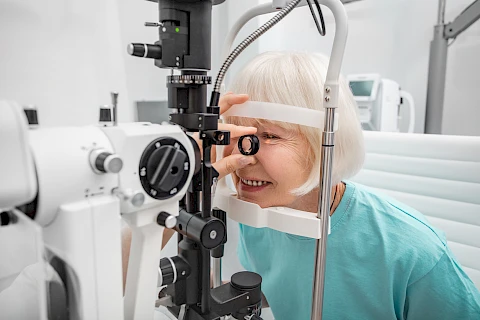
Caring for seniors involves meticulous monitoring of their overall health, including their vision. As caregivers, we play a pivotal role in ensuring that their eye health is effectively managed and that regular check-ups aren't neglected despite their reservations. Eye health is often overlooked, yet it's the vanguard against conditions that can significantly impact a senior's quality of life.
The Importance of Regular Eye Check-ups for Seniors
Taking seniors for routine eye check-ups is more than just a task. It's a preventative measure. Seniors are more prone to eye conditions like glaucoma, cataracts, and macular degeneration, which can significantly impact their vision and overall well-being if left unchecked. Neglecting eye health can result in decreased independence, increased accidents, and even social isolation in seniors due to their inability to engage in everyday activities fully.
Indications of Deteriorating Vision in Seniors
Recognizing early signs of worsening vision can play a decisive role in managing potential risks and complications. Some common signs include squinting, frequent headaches, changes in reading habits, and decreased involvement in activities requiring hand-eye coordination. A significant hint would be their increasing reliance on others for tasks that require good eyesight, like reading labels or driving.
How Often Should Seniors Have Their Eyes Checked?
Generally, seniors are recommended to get their eyes checked at least once a year. However, this frequency is subject to increase based on underlying health conditions, family history of eye diseases, and recent changes in vision or eye health. For instance, a senior with diabetes or a history of glaucoma in the family should ideally have more frequent check-ups. As caregivers, it's important to consult with eye care professionals to set an optimal check-up schedule based on each individual's circumstances.
Dealing With Seniors Who Believe Their Eyes Are Fine
Often, seniors might not perceive the changes in their vision or resist seeking professional help. In such cases, maintaining empathetic and consistent communication is essential. Share your observations regarding their changing vision habits and explain the escalating risks associated with neglecting their eye health. Encouragement and reassurance might be necessary to persuade them to see an optometrist. It is essential to reinforce that routine eye check-ups are not merely for those with poor vision but a preventive measure to maintain robust eye health.
Get Help Protecting Senior Eye Health
Eye health in seniors is a crucial aspect that should not be overlooked. The caregiver's role in monitoring, recognizing signs of deteriorating vision, and ensuring regular eye check-ups can significantly enhance the quality of life for seniors.
If you are in Seattle, Bellevue, Kirkland, Renton, or Sammamish and are looking for professional help and guidance caring for a senior loved one, Senior Helpers Seattle is here to assist you. Contact us to learn more about our home care services and how they can help you offer your senior loved one the highest possible quality of life.